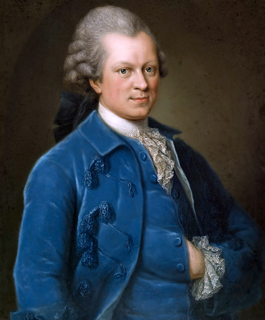A Quote by Gotthold Ephraim Lessing
The superstition in which we were brought up never loses its power over us, even after we understand it.
Related Quotes
Even when alternative views are clearly wrong, being exposed to them still expands our creative potential. In a way, the power of dissent is the power of surprise. After hearing someone shout out an errant answer, we work to understand it, which causes us to reassess our initial assumptions and try out new perspectives. “Authentic dissent can be difficult, but it’s always invigorating,” Nemeth says. “It wakes us right up.”
When even the brightest mind in our world has been trained up from childhood in a superstition of any kind, it will never be possible for that mind, in its maturity, to examine sincerely, dispassionately, and conscientiously any evidence or any circumstance which shall seem to cast a doubt upon the validity of that superstition. I doubt if I could do it myself.
I could never work out whether we were to view religion as a life-insurance policy or a life sentence. I can understand a wrathful God who'd just as soon dangle us all from a hook. And I can understand a tender, unprejudiced Jesus. But I could never quite feature the two of them living in the same house. You wind up walking on eggshells, never knowing which... is at home at the moment.
Audible prayer can never do the works of spiritual understanding, which regenerates; but silent prayer, watchfulness, and devout obedience enable us to follow Jesus example. Long prayers, superstition, and creeds clip the strong pinions of love, and clothe religion in human forms. Whatever materializes worship hinders man's spiritual growth and keeps him from demonstrating his power over error.
When we hate our enemies, we are giving them power over us: power over our sleep, our appetites, our blood pressure, our health and our happiness. Our enemies would dance with joy if only they knew how they were worrying us, lacerating us, and getting even with us! Our hate is not hurting them at al, but our hate is turning our days and nights into a hellish turmoil.
Assurance grows by repeated conflict, by our repeated experimental proof of the Lord's power and goodness to save; when we have been brought very low and helped, sorely wounded and healed, cast down and raised again, have given up all hope, and been suddenly snatched from danger, and placed in safety; and when these things have been repeated to us and in us a thousand times over, we begin to learn to trust simply to the word and power of God, beyond and against appearances: and this trust, when habitual and strong, bears the name of assurance; for even assurance has degrees.
Let us therefore reject all superstition in order to become more human; but in speaking against fanaticism, let us not imitate the fanatics: they are sick men in delirium who want to chastise their doctors. Let us assuage their ills, and never embitter them, and let us pour drop by drop into their souls the divine balm of toleration, which they would reject with horror if it were offered to them all at once.


































